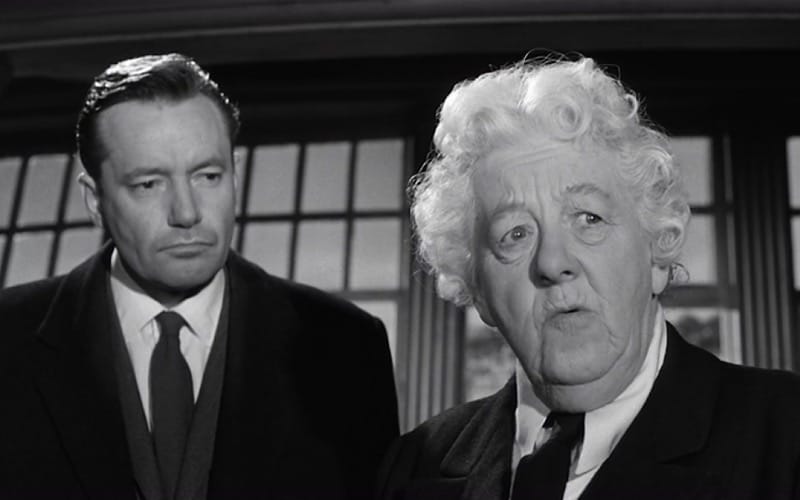Murder Ahoy (1964)

The final entry in the successful Miss Marple series starring Margaret Rutherford as the redoubtable sleuth, Murder Ahoy reunites the three main cast members—Rutherford, Davis and Tingwell—and involves them in dodgy goings-on at sea.
Following the death of her uncle, Miss Marple finds herself appointed as a trustee to the Cape of Good Hope Youth Reclamation Centre, which aims to ‘put backbone into young jellyfish’ by retraining young tear-aways as naval cadets.
When one of the trustees dies at Miss Marple’s first meeting, poisoned by strychnine in his snuff, she naturally takes it upon herself to visit the ship—in full naval uniform, no less—to investigate. Her appearance is very much to the chagrin of Captain Rhumstone (Jeffries, The Secret of My Success) and the rest of his crew, some or all of whom may be up to no good.
Tingwell and Davis are relegated to background as the marvellously pompous Jeffries acts as Rutherford’s main foil. Rhumstone is a quite magnificent creation and a character that would work in any number of British comedies, but he feels out-of-place in the world of Jane Marple, where there’s only space for one larger-than-life character. I found myself missing the gentle interplay between Miss Marple and her devoted friend, Mr Stringer, in particular.
The plot itself about a thieving ring is the weakest of the four Rutherford films, and it’s obvious that it’s the only of the four not to be based directly on an Agatha Christie source novel but on the screenwriters’ ‘interpretation of the character’. Unfortunately, they’ve stretched the character of Jane Marple too far towards parody, even calling upon Rutherford to engage in a rather unedifying swordfight (“I was Ladies’ National Fencing Champion in 1931”). As the success of the series depends on her believability, it’s not the ideal way for it to end, but it’s still an enjoyable piece of nonsense.
TV and radio favourite Nicholas Parsons can be seen in an early minor role at England’s fastest coroner.